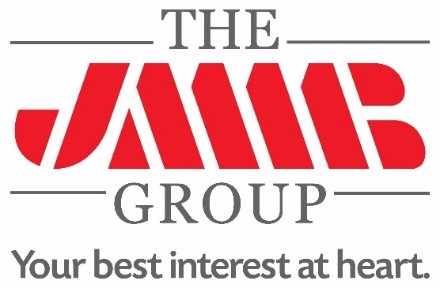Advertisers compete for consumer attention on TV.
The competition is not amongst advertisers, but with the slew of other activities being pursued by the consumer while “watching” television.
Successive all media reports have exposed the staggering number of Jamaican consumers not watching, listening or reading structured media. And for those who are, they are multitasking. As a result, the impact of the advertising message is being lost or at best, minimised. And to add insult to injury, the average consumer is more inclined to watch, listen and read when they want, in what is now referred to as, appointment media.
Internationally and even locally, consumers are being exposed to up to 5,000 marketing messages a day: on the street, on TV, in the newspapers, online. Ads are everywhere but mostly go unnoticed at best or worst yet, noticed but un- registered.
The competition to get consumers’ attention is getting fiercer: where are they to be found? Are they reading a newspaper or browsing the online edition of the same publication? Are they on the bus watching the billboards outside on the highway, or are they playing with their mobile phones?
With the variety of subject material and growing numbers in media choices the consumer can go where he wants for exactly what he wants when he wants. And in response international media is now geared more towards niche and specialised content, allowing for specialised programming opportunities.
In the September edition of OMMA, a magazine of online media marketing and advertising, Steve Smith in his article “ Getting in the Front door”, wrote,
“In an age of fragmentation and user controlled media, even door-to-door salesmen have to adjust their pitches. Consumers are increasingly less willing to open the door or their e-mail inboxes to even highly targeted and personalized pitches, say performance marketing experts. Marketers are chasing audiences across multiple media platforms, and even when they succeed in getting consumers’ attention, it’s getting harder to finesse a response. “People are saying, ‘No more!’” says Michele Fitzpatrick, chief marketing officer, Harte-Hanks Direct. “They don’t want to be bombarded with messages.”
 For instance, in Jamaica, all cable channels i.e. local cable and free to air on the television set now have an equal probability of been seen by the viewer, depending on the nature of the content and the consumers interest at that particular point in time. Of course the issue of distribution of the signal will determine the potential number of viewers, but all other things been equal, the probability is the same for the same type of programming content. So in the case of news for example, the consumer can choose from a wide array of local and international news presentations at 7 and at 8 pm. Each has equal probability of being watched. And the penetration of cable into Jamaican homes has resulted in an increased interaction with international media, further distancing the consumer from local media interaction.
For instance, in Jamaica, all cable channels i.e. local cable and free to air on the television set now have an equal probability of been seen by the viewer, depending on the nature of the content and the consumers interest at that particular point in time. Of course the issue of distribution of the signal will determine the potential number of viewers, but all other things been equal, the probability is the same for the same type of programming content. So in the case of news for example, the consumer can choose from a wide array of local and international news presentations at 7 and at 8 pm. Each has equal probability of being watched. And the penetration of cable into Jamaican homes has resulted in an increased interaction with international media, further distancing the consumer from local media interaction.
This rapid explosion of media entities has created a booming market for well produced and presented content from independent producers, facilitating the rapid growth of the content production industry.
Due to the elusive nature of the consumer more and more Jamaican advertisers are now accepting the segmentation of the media market. They are also now seeing the benefits of direct marketing, seeking a more direct contact and interaction with their customers through promotions and special events.
Enter Attention Economics.
The Wikipedia encyclopedia defines Attention Economics as an approach to the management of information that treats human attention as a scarce commodity, and applies economic theory to solve various information management problems.
Herbert Simon was perhaps the first person to articulate the concept of attention economics when he wrote:
“…in an information-rich world, the wealth of information means a dearth of something else: a scarcity of whatever it is that information consumes. What information consumes is rather obvious: it consumes the attention of its recipients. Hence a wealth of information creates a poverty of attention and a need to allocate that attention efficiently among the overabundance of information sources that might consume it” (Simon 1971, p. 40-41).
He noted that many designers of information systems incorrectly represented their design problem as information scarcity rather than attention scarcity, and as a result they built systems that excelled at providing more and more information to people, when what was really needed were systems that excelled at filtering out unimportant or irrelevant information (Simon 1996, p. 143-144).
“Attention Economics” today is primarily concerned with the problem of getting consumers to consume advertising. Traditional media advertisers followed a model that suggested consumers went through a linear process they called AIDA – Attention, Interest, Desire and Action.
Attention is therefore a crucial and the first stage in the process of converting non-consumers. Since the cost to transmit advertising to consumers is now sufficiently low that more ads can be transmitted to a consumer than the consumer can process, inevitably the consumer’s attention becomes the scarce resource to be captured.
 In 2005, there was a surge of interest in attention economics as applied to advertising. Consultants began offering expertise in the attention economy as it applied to advertising. “Across consumer markets, attention is becoming the scarcest – and so most strategically vital – resource in the value chain. Attention scarcity is fundamentally reshaping the economics of most industries it touches; beginning with the media industry.” (Haque 2005)
In 2005, there was a surge of interest in attention economics as applied to advertising. Consultants began offering expertise in the attention economy as it applied to advertising. “Across consumer markets, attention is becoming the scarcest – and so most strategically vital – resource in the value chain. Attention scarcity is fundamentally reshaping the economics of most industries it touches; beginning with the media industry.” (Haque 2005)
The answers are difficult to find, so – Think Differently, Integrate, Don’t separate, Don’t focus on talking, rather, Listen to the people: they will not tell you the perfect solution, but they’ll show you the right way through blogs, billboards, podcasting, mobile phones and… through TV advertising.
Material published on the Internet was used in writing this article.

 Businessuite News24 International2 years ago
Businessuite News24 International2 years ago
 Feedback & What You Think2 years ago
Feedback & What You Think2 years ago
 Marketing & Advertising2 years ago
Marketing & Advertising2 years ago
 Businessuite Women1 year ago
Businessuite Women1 year ago
 Businessuite 50 Power and Influence1 year ago
Businessuite 50 Power and Influence1 year ago
 Leadership Conversations1 year ago
Leadership Conversations1 year ago
 Businessuite Markets2 years ago
Businessuite Markets2 years ago
 RANKING2 years ago
RANKING2 years ago









